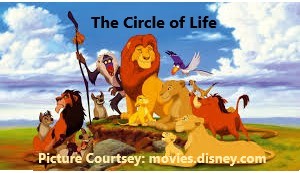The Gifting culture that bonds people of all age groups

Gifting is a common language spoken all over the world cutting across various culture and age groups. The most vivid memory of gifting starts the day you celebrate your 3rd birthday. The 1st and the 2nd birthday are more for the parents to celebrate while it’s the 3rd birthday when they hand over the baton to you. The reason being that by the third year you become more socially aware of your surroundings.
The gifts of childhood are always bigger physically in size as compared to the ones you get in adulthood. All the teeny-weeny dressed in colourful dresses land at your birthday party carrying gifts larger than their size. A dumper truck, a kid’s bicycle, a remote-controlled car, and so on. Gifts in adulthood are smaller in sizes like a diamond ring or a mobile phone though more expensive.

It’s childhood that gives you the first exposure to gifts and thereafter you carry forward a gifting culture throughout your life. The ritual of opening the gifts one by one, after the guests have left slowly gets embedded in your system. This entire pleasurable experience is something that you will enjoy forever.
Gifting culture can be divided into three stages in life – Receiving a gift, Giving and receiving a gift, and Giving a gift. The initial years of life are all about receiving gifts. This is followed by giving and receiving a gift where giving a gift is as pleasurable as receiving one. Finally, you reach an age when you refuse to accept gifts and believe only in giving them.
Childhood is when you develop a taste of the gifting culture
Childhood is an age where you are always interested in receiving a gift. It all starts with a birthday but then it builds up as you grow older. You expect a bigger gift every year, especially from the loved ones. The occasions move beyond birthdays. Parents to an extent are also the culprits as they use gifts as a bait to get desirable results from children.

A sports championship like swimming or a table tennis tournament in school in class 6th and you are promised your first racing bicycle if you win. Score 95% and more in Class 10th boards and you get your first mobile phone. Crack IIT or Medical competition and you get your first foreign vacation.
In this race of achieving milestones and receiving gifts somewhere, kids overlook the sacrifice made by the parents. In the not so well to do families parents do try to incentivize their kids with gifts that are within their reach. All families may not be able to afford a mobile or a foreign trip but still, their kid is not less than any other kid. Parents save money over a while to buy a gift for their kid to reward his or her accomplishment; a watch for the son when he stands meritorious in class 12th exam or gold earrings for the daughter.

Childhood is all about growing under a protected umbrella of parents where one thinks more about himself rather than the outside world. Too much protection may lead a child to develop into a self-centric person
Sacrifice makes the gifting culture a memorable one

To get those gold earrings for the daughter or a branded watch for the son, parents may opt for a credit card EMI scheme. It means cutting down on household expenses in the coming days. And in case if the gift happens to be a laptop that the kid may need in his or her higher college studies then obviously the resources get overstretched.
Kids don’t realise the sacrifice parents make while gifting but somewhere deep down their conscious they make a note of it. It’s this learning that he or she will follow in the coming years.
The Give and Receive stage of gifting culture
As you step into adulthood you realise that gifting is not a one-way channel but a two-way street. You are flooded with gifts from your friends and near ones on your birthday but have to return the gesture on their special days.

One of the biggest examples of this two-way gifting culture is at weddings. Parents make a note of all the gifts received from guests who attended their daughter’s reception. Gifts can be in form of cash or a physical item. The day when parents are invited to a guest’s son’s wedding reception, they try to match the value of the gift in cash or a tangible product.
This transactional gifting culture makes a person understand that there are no free lunches in life. In the real world if you take a favour from somebody then it has to be returned one day.
The Giving stage
This is the last and final stage of gifting. As you enter the middle age you start thinking about kids on one hand and parents on the other. You enter a stage of life where you don’t want anything for yourself.

You feel thrilled to buy the latest phone for your 74-year-old father. It’s a different matter that your father will scold you for wasting money on him. While buying an expensive saree for your daughter for her marriage anniversary you tend to buy one for your mom. Mom shows her reservation on receiving an expensive saree and advises you to save money instead of spending.
This is the stage of Moksha where you don’t want anything for yourself and feel happy in giving.
Finally, the life cycle gets complete and you enter old-age where once again like childhood you start getting gifts.
The day you buy a new television set for your father’s viewing or new walking shoes, he expresses his happiness by instantly using it. He goes through the TV manual to set his favourite channel or wears the shoes the very next morning. Mom on the other hand still shows that her tear glands have not gone dry. An expensive saree or a gold necklace brings tears to her eyes.
It is then you realise that the actual worth of a gift can’t be measure in money but instead in tears and smiles.
You can enjoy reading more such stories on my blog. Click on the following link:
Gift for someone you love: One of the best way to express love
The Blame Game – Who wins: Kids or Parents
If your planning to buy gift for someone you love you can select by clicking on the following link:
https://www.amazon.in/Love-Gifts/s?k=Love+Gifts












Comments
1 Comment
[…] The Gifting culture that bonds people of all age groups […]
Leave a Comment